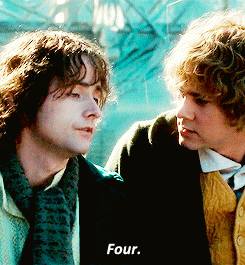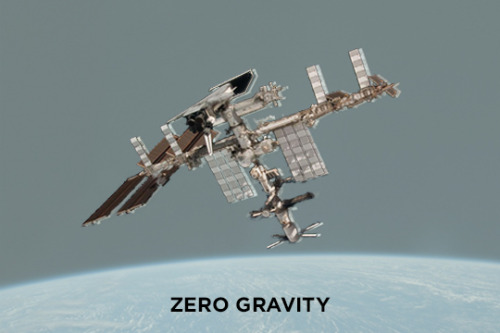(Image Caption: Brain Showing Hallmarks Of Alzheimer’s Disease (plaques In Blue). Credit: ZEISS Microscopy)

(Image caption: Brain showing hallmarks of Alzheimer’s disease (plaques in blue). Credit: ZEISS Microscopy)
New imaging technique measures toxicity of proteins associated with Alzheimer’s and Parkinson’s diseases
Researchers have developed a new imaging technique that makes it possible to study why proteins associated with Alzheimer’s and Parkinson’s diseases may go from harmless to toxic. The technique uses a technology called multi-dimensional super-resolution imaging that makes it possible to observe changes in the surfaces of individual protein molecules as they clump together. The tool may allow researchers to pinpoint how proteins misfold and eventually become toxic to nerve cells in the brain, which could aid in the development of treatments for these devastating diseases.
The researchers, from the University of Cambridge, have studied how a phenomenon called hydrophobicity (lack of affinity for water) in the proteins amyloid-beta and alpha synuclein – which are associated with Alzheimer’s and Parkinson’s respectively – changes as they stick together. It had been hypothesised that there was a link between the hydrophobicity and toxicity of these proteins, but this is the first time it has been possible to image hydrophobicity at such high resolution. Details are reported in the journal Nature Communications.
“These proteins start out in a relatively harmless form, but when they clump together, something important changes,” said Dr Steven Lee from Cambridge’s Department of Chemistry, the study’s senior author. “But using conventional imaging techniques, it hasn’t been possible to see what’s going on at the molecular level.”
In neurodegenerative diseases such as Alzheimer’s and Parkinson’s, naturally-occurring proteins fold into the wrong shape and clump together into filament-like structures known as amyloid fibrils and smaller, highly toxic clusters known as oligomers which are thought to damage or kill neurons, however the exact mechanism remains unknown.
For the past two decades, researchers have been attempting to develop treatments which stop the proliferation of these clusters in the brain, but before any such treatment can be developed, there first needs to be a precise understanding of how oligomers form and why.
“There’s something special about oligomers, and we want to know what it is,” said Lee. “We’ve developed new tools that will help us answer these questions.”
When using conventional microscopy techniques, physics makes it impossible to zoom in past a certain point. Essentially, there is an innate blurriness to light, so anything below a certain size will appear as a blurry blob when viewed through an optical microscope, simply because light waves spread when they are focused on such a tiny spot. Amyloid fibrils and oligomers are smaller than this limit so it’s very difficult to directly visualise what is going on.
However, new super-resolution techniques, which are 10 to 20 times better than optical microscopes, have allowed researchers to get around these limitations and view biological and chemical processes at the nanoscale.
Lee and his colleagues have taken super-resolution techniques one step further, and are now able to not only determine the location of a molecule, but also the environmental properties of single molecules simultaneously.
Using their technique, known as sPAINT (spectrally-resolved points accumulation for imaging in nanoscale topography), the researchers used a dye molecule to map the hydrophobicity of amyloid fibrils and oligomers implicated in neurodegenerative diseases. The sPAINT technique is easy to implement, only requiring the addition of a single transmission diffraction gradient onto a super-resolution microscope. According to the researchers, the ability to map hydrophobicity at the nanoscale could be used to understand other biological processes in future.
More Posts from Smparticle2 and Others

Scientists build bacteria-powered battery on single sheet of paper
Instead of ordering batteries by the pack, we might get them by the ream in the future. Researchers at Binghamton University, State University of New York have created a bacteria-powered battery on a single sheet of paper that can power disposable electronics. The manufacturing technique reduces fabrication time and cost, and the design could revolutionize the use of bio-batteries as a power source in remote, dangerous and resource-limited areas.
“Papertronics have recently emerged as a simple and low-cost way to power disposable point-of-care diagnostic sensors,” said Assistant Professor Seokheun “Sean” Choi, who is in the Electrical and Computer Engineering Department within the Thomas J. Watson School of Engineering and Applied Science. He is also the director of the Bioelectronics and Microsystems Lab at Binghamton.
“Stand-alone and self-sustained, paper-based, point-of-care devices are essential to providing effective and life-saving treatments in resource-limited settings,” said Choi.
On one half of a piece of chromatography paper, Choi and PhD candidate Yang Gao, who is a co-author of the paper, placed a ribbon of silver nitrate underneath a thin layer of wax to create a cathode. The pair then made a reservoir out of a conductive polymer on the other half of the paper, which acted as the anode. Once properly folded and a few drops of bacteria-filled liquid are added, the microbes’ cellular respiration powers the battery.
Read more.




Snowflakes from William Scoresby’s des Jüngern Tagebuch einer reise auf den Wallfischfang, (Hamburg: F. Perthes, 1825), the German translation of Journal of a voyage to the northern whale-fishery.
Scoresby was an Arctic explorer with interests in meteorology and navigation, who led an Arctic exploration in the early 1800s to the area around Greenland.
Opinion is really the lowest form of human knowledge. It requires no accountability, no understanding. The highest form of knowledge is empathy, for it requires us to suspend our egos and live in another’s world. It requires profound purpose larger than the self kind of understanding.
Plato, The Republic (via fyp-philosophy)
Interesting

Hold a buoyant sphere like a ping pong ball underwater and let it go, and you’ll find that the ball pops up out of the water. Intuitively, you would think that letting the ball go from a lower depth would make it pop up higher – after all, it has a greater distance to accelerate over, right? But it turns out that the highest jumps comes from balls that rise the shortest distance. When released at greater depths, the buoyant sphere follows a path that swerves from side to side. This oscillating path is the result of vortices being shed off the ball, first on one side and then the other. (Image and research credit: T. Truscott et al.)














Theatre time. All dancer have their own ways of getting ready for a show. I believe that a consistent routine is important to preparing for what’s ahead in a few hours. Because Forsythe’s “Artifact” is so hard on the body and I’m in every show, I tend to get to the theatre pretty early to make sure everything is ready, to put on some “normatec” boots (a compression boot for athletes that helps greatly with fatigue) and do hair and makeup. - Lia Cirio
Lia Cirio - Boston Opera House
Follow the Ballerina Project on Facebook, Instagram, YouTube, Twitter & Pinterest
For information on purchasing Ballerina Project limited edition prints.

Nardia - Central Park, New York City
Follow the Ballerina Project on Facebook, Instagram, YouTube, Twitter & Pinterest
For information on purchasing Ballerina Project limited edition prints.
Outfit by @blackmilkclothing Black Milk Clothing





Astronaut Scott Kelly has spent more time in space than any other American. He has also played solo ping pong with a ball of water and two hydrophobic paddles. Scott Kelly is an American hero.
Image Credit: NASA
-
 swagsuitcasesharkbat-blog liked this · 6 years ago
swagsuitcasesharkbat-blog liked this · 6 years ago -
 dragonkinglover reblogged this · 6 years ago
dragonkinglover reblogged this · 6 years ago -
 dragonkinglover liked this · 6 years ago
dragonkinglover liked this · 6 years ago -
 oc45 liked this · 6 years ago
oc45 liked this · 6 years ago -
 dearkurisu liked this · 6 years ago
dearkurisu liked this · 6 years ago -
 atomicfuryanchor-blog liked this · 8 years ago
atomicfuryanchor-blog liked this · 8 years ago -
 clearlyjoyfulstudentstuff liked this · 8 years ago
clearlyjoyfulstudentstuff liked this · 8 years ago -
 reptarzrawr reblogged this · 8 years ago
reptarzrawr reblogged this · 8 years ago -
 classyrevelry liked this · 8 years ago
classyrevelry liked this · 8 years ago -
 ag47silver liked this · 8 years ago
ag47silver liked this · 8 years ago -
 biponerdlet reblogged this · 8 years ago
biponerdlet reblogged this · 8 years ago -
 keristraub-blog reblogged this · 8 years ago
keristraub-blog reblogged this · 8 years ago -
 decadentturtlehideout-blog liked this · 8 years ago
decadentturtlehideout-blog liked this · 8 years ago -
 pettyjah-blog reblogged this · 8 years ago
pettyjah-blog reblogged this · 8 years ago -
 darksilvan reblogged this · 8 years ago
darksilvan reblogged this · 8 years ago -
 darksilvan liked this · 8 years ago
darksilvan liked this · 8 years ago -
 b2c2d liked this · 8 years ago
b2c2d liked this · 8 years ago -
 dancezwithwolvez liked this · 8 years ago
dancezwithwolvez liked this · 8 years ago -
 db89111-blog reblogged this · 8 years ago
db89111-blog reblogged this · 8 years ago -
 crystalzeal liked this · 8 years ago
crystalzeal liked this · 8 years ago -
 deepblu96-blog liked this · 8 years ago
deepblu96-blog liked this · 8 years ago -
 thatrenaissanceguy liked this · 8 years ago
thatrenaissanceguy liked this · 8 years ago -
 maceygoestomedschool reblogged this · 8 years ago
maceygoestomedschool reblogged this · 8 years ago -
 hubbucket reblogged this · 8 years ago
hubbucket reblogged this · 8 years ago -
 hubbucket liked this · 8 years ago
hubbucket liked this · 8 years ago -
 thicktrash liked this · 8 years ago
thicktrash liked this · 8 years ago -
 puteriseribubulan reblogged this · 8 years ago
puteriseribubulan reblogged this · 8 years ago -
 puteriseribubulan liked this · 8 years ago
puteriseribubulan liked this · 8 years ago -
 krombopulos9michael reblogged this · 8 years ago
krombopulos9michael reblogged this · 8 years ago -
 krombopulos9michael liked this · 8 years ago
krombopulos9michael liked this · 8 years ago -
 maryisfabulous-blog reblogged this · 8 years ago
maryisfabulous-blog reblogged this · 8 years ago -
 maryisfabulous-blog liked this · 8 years ago
maryisfabulous-blog liked this · 8 years ago -
 star-fireflys reblogged this · 8 years ago
star-fireflys reblogged this · 8 years ago -
 flora-to-fauna reblogged this · 8 years ago
flora-to-fauna reblogged this · 8 years ago -
 flora-to-fauna liked this · 8 years ago
flora-to-fauna liked this · 8 years ago -
 whispersofeternalmoonmist liked this · 8 years ago
whispersofeternalmoonmist liked this · 8 years ago -
 i-rodger liked this · 8 years ago
i-rodger liked this · 8 years ago -
 smparticle2 reblogged this · 8 years ago
smparticle2 reblogged this · 8 years ago -
 acityofglasswithnoheart reblogged this · 8 years ago
acityofglasswithnoheart reblogged this · 8 years ago -
 acityofglasswithnoheart liked this · 8 years ago
acityofglasswithnoheart liked this · 8 years ago -
 head-scritches reblogged this · 8 years ago
head-scritches reblogged this · 8 years ago -
 mardsen liked this · 8 years ago
mardsen liked this · 8 years ago -
 joybirds reblogged this · 8 years ago
joybirds reblogged this · 8 years ago
